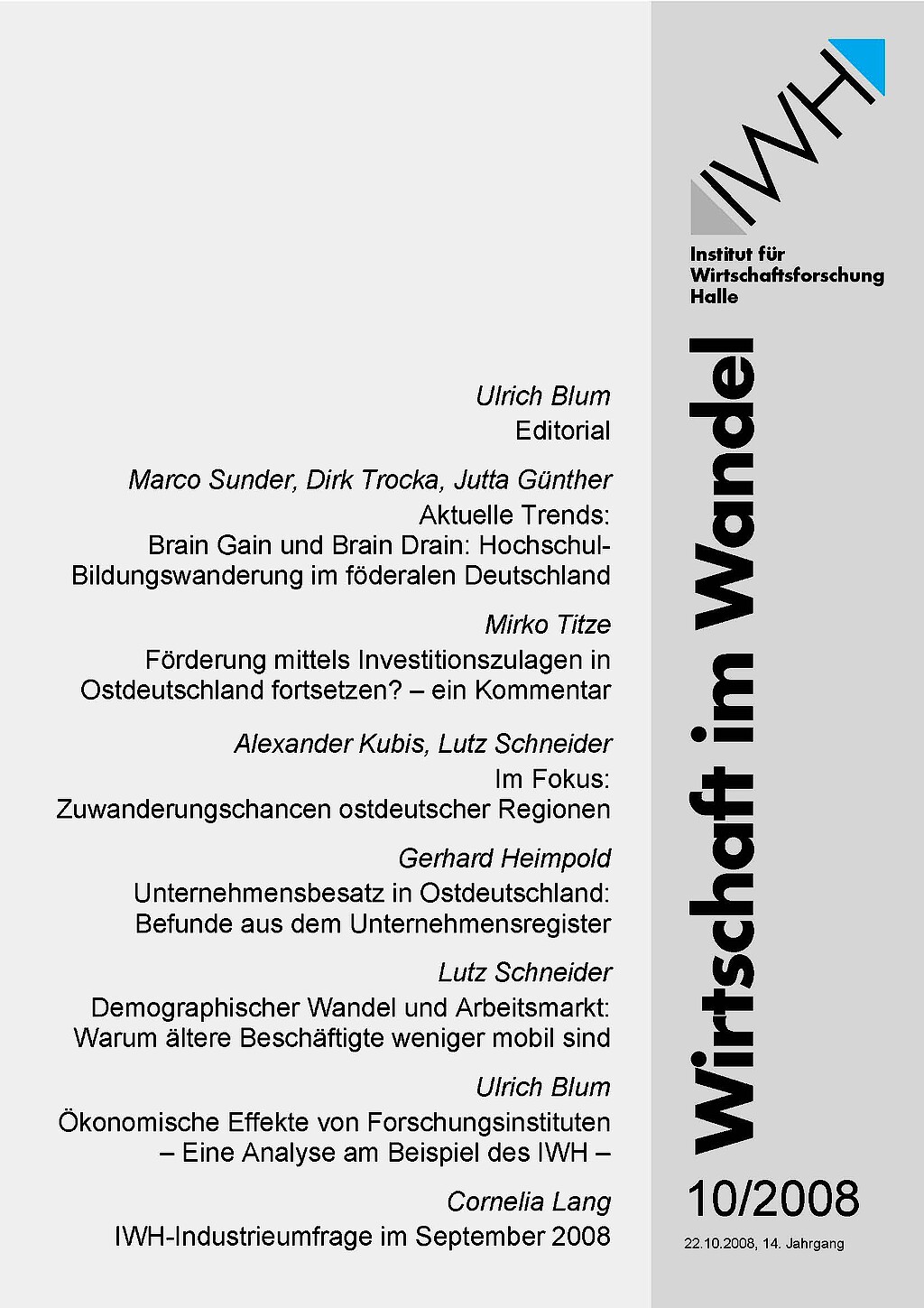
Demographic Change and Labour Markets: Why are Older Employees less Mobile?
Die absehbare Alterung der Erwerbstätigen in Deutschland wird Konsequenzen für die Beschäftigtenmobilität haben, ist doch bekannt, dass die Wechselneigung mit zunehmendem Alter sinkt. Die vorliegende Arbeit analysiert auf Basis der IAB-Beschäftigtenstichprobe (IABS) die Wirkung des Alters auf die betriebliche und berufliche Mobilität. Im Zentrum steht dabei die Frage, ob Ältere weniger mobil sind, weil sie bereits eine passende und gut entlohnte Position innehaben, die sie durch einen Wechsel nicht mehr wesentlich verbessern können, oder ob andere Aspekte zur Erklärung des altersbedingten Mobilitätsrückgangs heranzuziehen sind. Im Ergebnis zeigt sich erstens, dass erwartete Lohnzuwächse die betriebliche und berufliche Mobilität über alle Altersklassen hinweg positiv beeinflussen. Zweitens wird deutlich, dass ältere Beschäftigte sehr viel seltener wechselbedingte Lohnzuwächse realisieren können als jüngere, was einen zentralen Grund für die geringere Wechselneigung Älterer darstellt. Drittens belegt die Analyse jedoch ebenfalls, dass die fehlenden Lohnanreize den Mobilitätsrückstand Älterer nicht vollständig erklären können. Selbst nach Kontrolle des Einkommenseffekts wechseln Ältere sehr viel seltener als Junge. Aufgrund dieser Befunde lässt sich die Ansicht, dass die zunehmende Alterung der Beschäftigten die Effizienz des Arbeitsmarkts in tendenziell negativer Weise beeinflussen wird, nicht entkräften. Es steht zu befürchten, dass Ältere weniger sensibel auf Lohnsignale reagieren und selbst durch attraktive Angebote nicht zu einem Wechsel bewegt werden können. Dies kann Unternehmen mit wachsendem Beschäftigungspotenzial vor erhebliche Probleme stellen, mit entsprechend negativen Folgen für den technologischen und sektoralen Wandel.




